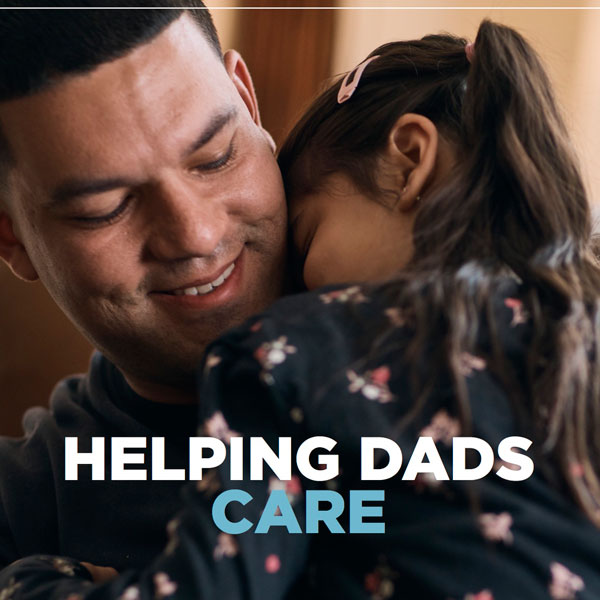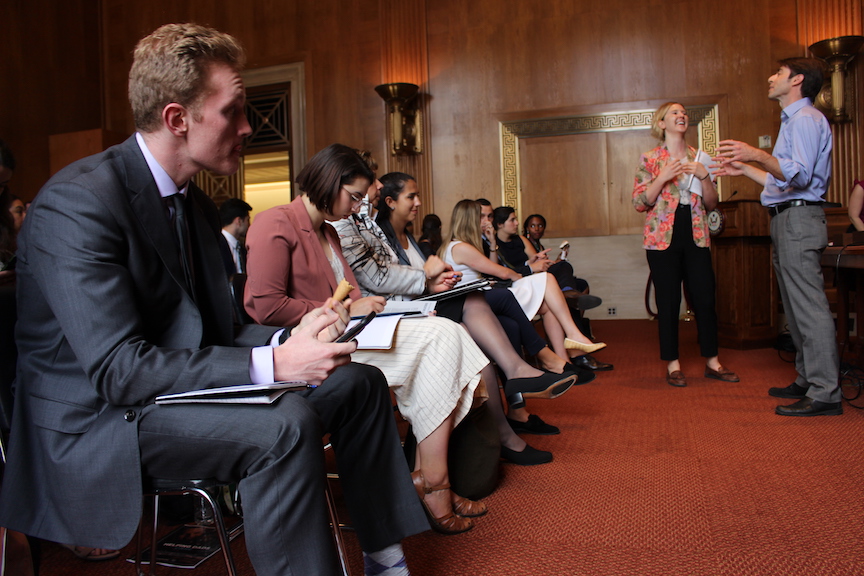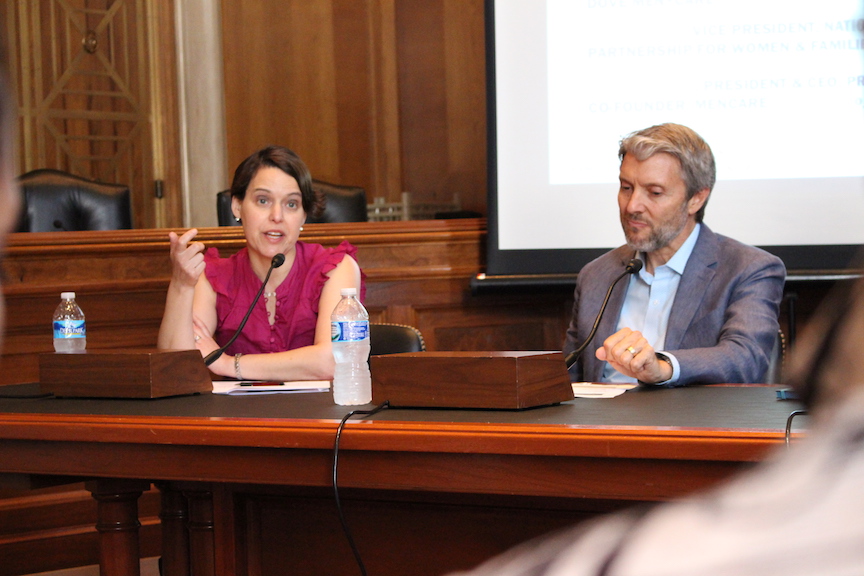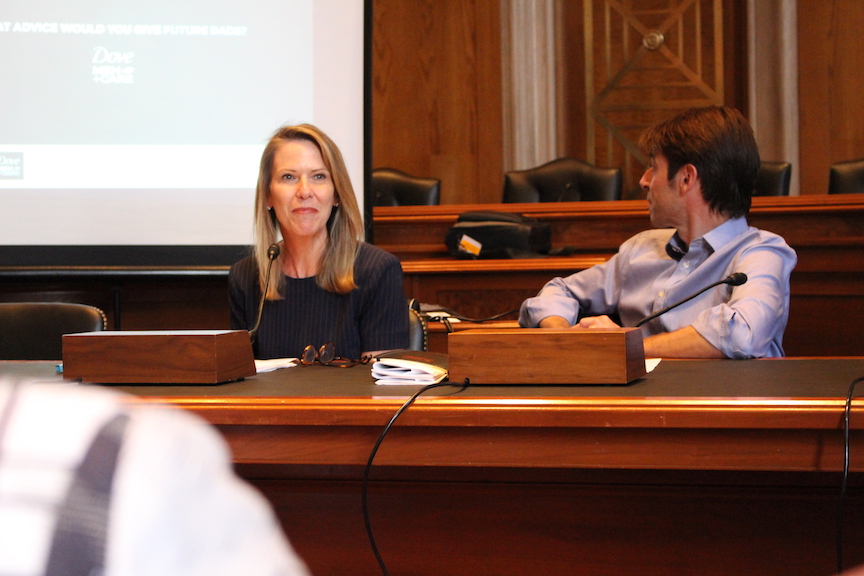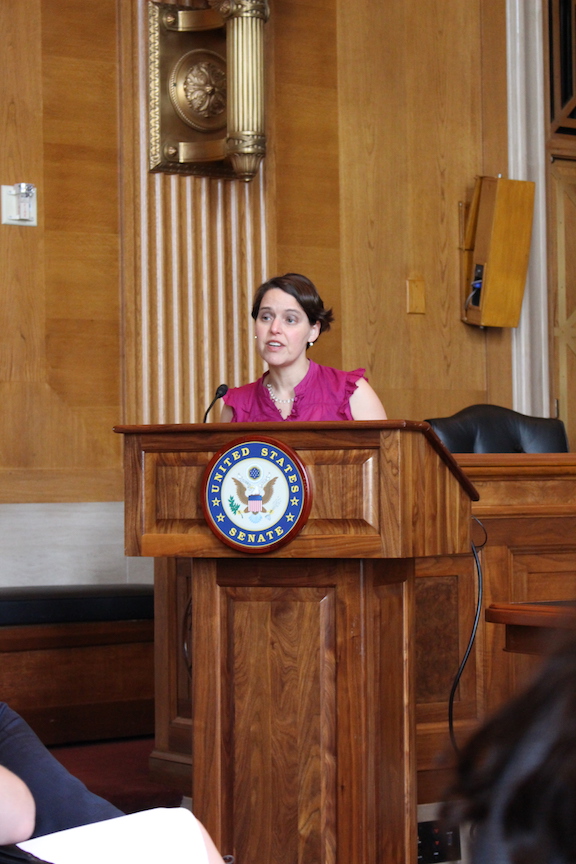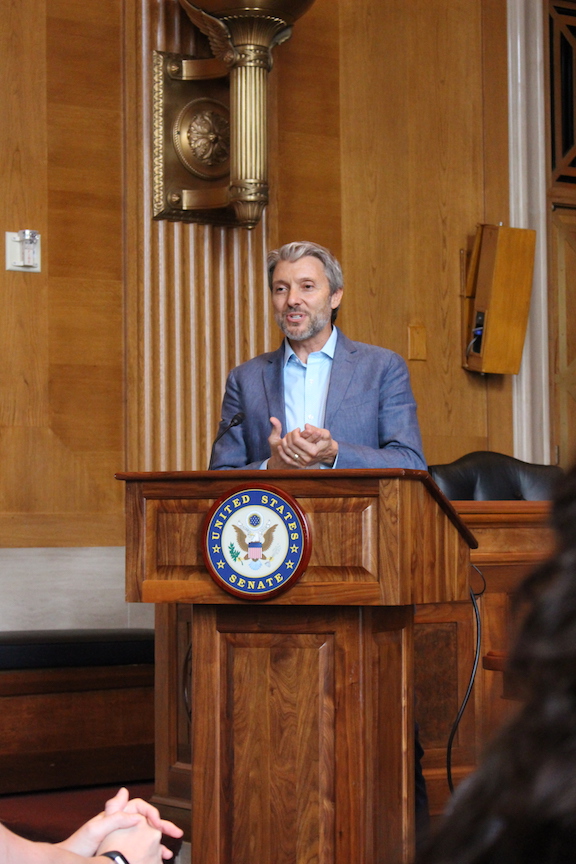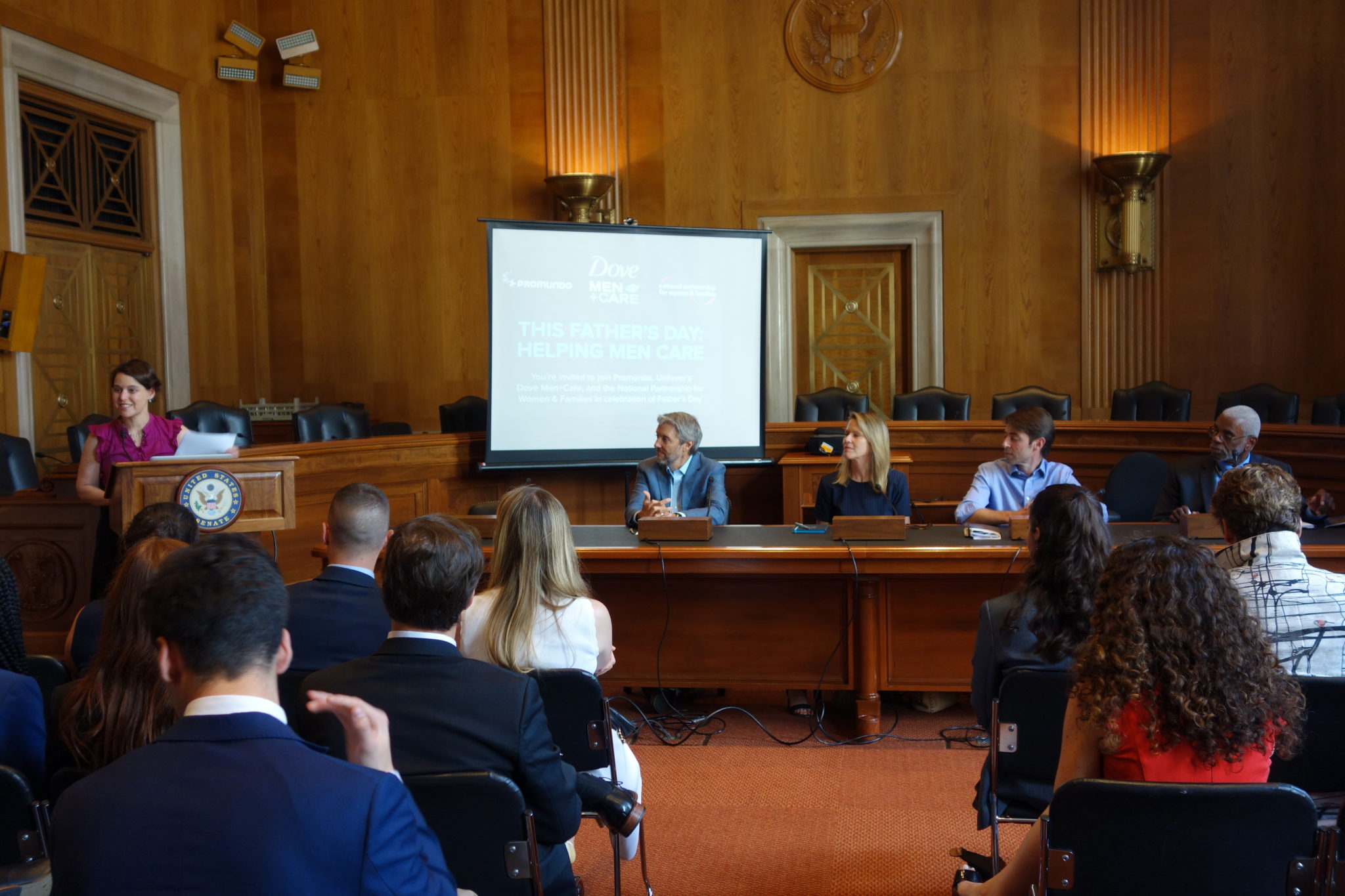Equimundo et Dove Men+Care se sont associés pour mener une étude pionnière sur ce qui empêche les pères de prendre un congé parental et d'être les aidants pleinement engagés qu'ils souhaitent être.
Les résultats – publiés dans le Aider les papas à prendre soin de leurs proches Rapport – confirmant avant tout la volonté des pères de s'impliquer. Cette recherche a été présentée lors d'une réunion d'information au Sénat américain le 12 juillet 2018, co-organisée par le Partenariat national pour les femmes et les familles.
Pourquoi cette étude ?
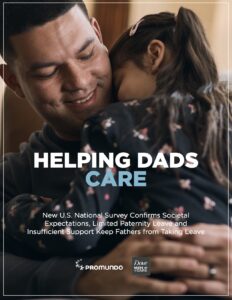 Au cours des 30 dernières années, les pères américains ont augmenté de près d'un tiers le temps qu'ils consacrent à leurs enfants. De plus en plus, hommes et femmes souhaitent partager équitablement les soins aux enfants. Pourtant, les hommes s'occupent moins des enfants que les femmes.
Au cours des 30 dernières années, les pères américains ont augmenté de près d'un tiers le temps qu'ils consacrent à leurs enfants. De plus en plus, hommes et femmes souhaitent partager équitablement les soins aux enfants. Pourtant, les hommes s'occupent moins des enfants que les femmes.
Pourquoi ? En partie parce que les pères, comme les mères et les autres aidants, ont besoin de soutien pour s'occuper de leurs enfants, notamment de congés après la naissance ou l'adoption d'un enfant. Les États-Unis restent la seule économie avancée au monde à ne pas offrir de congé parental rémunéré garanti à l'échelle nationale.
Même les congés non payés sont difficiles à obtenir aux États-Unis. Les derniers chiffres montrent que moins de 401 TP3T de travailleurs, hommes et femmes, y ont droit et peuvent se le permettre en vertu de la loi sur le congé familial et médical. En ce qui concerne le congé parental payé, l'accès est encore plus faible, avec seulement 151 TP3T de travailleurs et travailleuses pouvant bénéficier d'un congé payé par leur employeur.
Cependant, même lorsque les femmes et les hommes ont accès à des congés payés, de nombreux parents, notamment les pères, ne les utilisent pas pleinement. Pour explorer cet enjeu crucial qui touche les hommes, les femmes et les générations futures, Equimundo et Dove Men+Care ont mené une enquête en ligne auprès d'hommes et de femmes âgés de 25 à 45 ans, incluant 1 088 hommes (dont 831 pères) et 626 femmes (dont 641 mères).
Résultats:
L'étude a révélé que 731 pères sur 3 ont reconnu le manque de soutien de leur entreprise, et qu'un homme sur cinq craignait de perdre son emploi s'il prenait la totalité du congé paternité qui lui était offert. Il est à noter que 691 pères sur 3 ont confirmé qu'ils changeraient d'emploi pour passer plus de temps avec leurs enfants. Les résultats ont également montré que les hommes se disaient plus satisfaits de leur vie, y compris de leur vie sexuelle, lorsqu'ils pouvaient s'occuper de leurs enfants comme ils le souhaitaient.
Qu'est-ce qui les freine ? Les pères s'inquiètent de l'opinion publique s'ils privilégient leurs enfants à leur travail, et ils craignent que leurs revenus, et ceux de leur famille, pâtissent d'un congé parental. De plus, deux stéréotypes traditionnels demeurent des obstacles importants : l'idée que les hommes devraient être les principaux soutiens de famille et que les femmes devraient être les principales responsables des enfants.
Trop peu d’entreprises offrent des congés payés aux pères, et même lorsqu’elles le font, trop peu de pères prennent leur congé complet parce qu’ils s’inquiètent de ce que les autres pensent d’eux, en particulier au travail.
Informations clés supplémentaires :
- Les femmes et les hommes affirment que prendre soin de leurs enfants est tout aussi important pour eux et qu’ils feraient tout leur possible pour passer du temps avec eux.
- Les pères sont plus susceptibles de prendre un congé de paternité si leur lieu de travail propose des modalités de travail flexibles, si leurs propres parents les soutiennent dans cette démarche et s’ils ont davantage de contrôle sur leur propre vie professionnelle.
- Les hommes et les femmes sous-estiment le soutien de leurs managers au congé de paternité.
- Les hommes et les femmes doutent des avantages d’un congé parental prolongé pour les pères, en particulier des avantages qui sont moins intuitifs.
- Les hommes comme les femmes ont tendance à croire qu’ils sont meilleurs dans leurs rôles traditionnels que l’autre sexe, mais égaux à l’autre sexe dans les rôles non traditionnels.
- Les pères et les mères disent qu’ils rencontrent des difficultés à s’impliquer pleinement en tant que parents en raison de la pression au travail, mais les pères perçoivent des obstacles encore plus grands.
L'étude confirme que les hommes souhaitent s'impliquer dans les soins. Des normes sociales obsolètes et le manque de soutien au travail, ainsi que d'autres formes de contact social, constituent trop souvent des obstacles à une participation équitable des hommes aux tâches de soins. Soutenir les pères dans l'accès au congé de paternité aidera les hommes à être les parents qu'ils souhaitent être et contribuera à faire progresser l'égalité des sexes, tant au sein du foyer que dans la société en général, en renforçant l'autonomie des femmes dans différents domaines de leur vie.
Le Aider les papas à prendre soin de leurs proches le rapport est disponible en ligne ici.
Voir les photos du briefing du Congrès ici :
